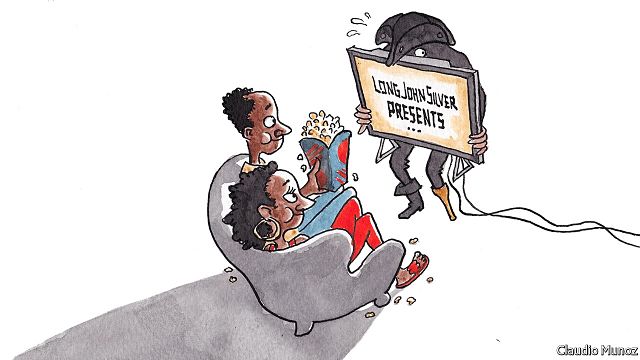 Ethiopia’s ingenious video pirates: Not even a slow internet can stop the bootleggers of Addis Ababa.
Ethiopia’s ingenious video pirates: Not even a slow internet can stop the bootleggers of Addis Ababa.
DOWNLOADING a movie, legally or not, is prohibitively slow in Ethiopia, thanks to glacial internet speeds. Bootleg DVDs are everywhere, but even so it can be hard to find a reasonable-quality version of the latest Hollywood blockbuster. Only one cinema in Addis Ababa, the capital, screens foreign hits. Resourceful pirates spy an opportunity.
Last year yellow ATM-style kiosks began to spring up around Addis Ababa. The brainchild of three Ethiopian science graduates and their software company, Swift Media, the Chinese-built kiosks allow customers to transfer any of 6,000 pirated foreign movies or 500 music albums onto a USB stick they insert for as little as 10 cents per file. The kiosks are located in large malls in full view of authorities, who show no interest in shutting them down.
This is just one manifestation of a general disregard for foreign intellectual-property (IP) rights in Ethiopia. Swift Media is breaking no local laws by selling plundered foreign films. Ethiopia is not a member of the World Trade Organisation (WTO). Indeed, it is the largest country that has not yet signed any of the big international treaties governing IP, according to Seble Baraki, a local lawyer. Foreign trademarks are infringed with impunity. Kaldi’s, the country’s biggest coffee chain, has a logo suspiciously similar to that of Starbucks. Intercontinental Hotels Group, a British-owned hotel company, is suing a large hotel in central Addis Ababa with the same name. In-N-Out Burger, an American fast-food franchise, has a popular equivalent in Ethiopia that the American firm only learned about when tourists complained to it about poor standards.
—
Join the conversation on Twitter and Facebook.

























